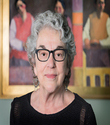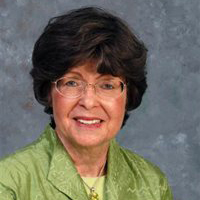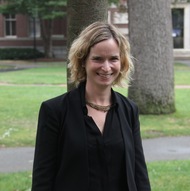2020 Everyone Reading Conference 02/03/2020 - 02/04/2020 CUNY Graduate Center 365 Fifth Ave. @ 34th Street New York, NY |
|
|
Everyone Reading invites you to attend our 47th Annual Conference on Dyslexia and Related Learning Disabilities Learn new strategies from noted experts in the field and experience the latest in teaching resources, technologies, schools and programs. Download the 2020 Everyone Reading Program for the conference
|
|
CONFERENCE FEES
| Postmarked ON or BEFORE December 31, 2019 |
Postmarked AFTER December 31, 2019 |
|||||
| Attendee | Student** | CUNY Student*** |
Attendee | Student** |
CUNY Student*** |
|
| Full - 2 Days | $330 | $180 | $150 | $380 |
$220 |
$200 |
| 1 Day |
$280 | $150 | $125 | $330 | $170 | $150 |
*For groups of 10 or more receive a 20% discount - enter code Group10
* Note Group Discount is not applicable to NYCDOE registrations
**Proof of full-time student status is required.
***Proof of CUNY student status is required.
Ticket Price includes all day access to the Exhibit Hall
 Dr. Anita Archer serves as an educational consultant to state departments and school districts on explicit instruction and literacy. She has presented in all 50 states and many countries including Australia and is the recipient of ten awards honoring her contributions to education. Dr. Archer has served on the faculties of three universities including University of Washington, University of Oregon, and San Diego State University. She has co-authored numerous curriculum materials including Phonics for Reading (Curriculum Associates), a three-level intervention program, REWARDS (Voyager/Sopris), a five-component literacy intervention program, and a best-selling textbook titled Explicit Instruction: Effective and Efficient Teaching (Guilford Publications). Dr. Anita Archer serves as an educational consultant to state departments and school districts on explicit instruction and literacy. She has presented in all 50 states and many countries including Australia and is the recipient of ten awards honoring her contributions to education. Dr. Archer has served on the faculties of three universities including University of Washington, University of Oregon, and San Diego State University. She has co-authored numerous curriculum materials including Phonics for Reading (Curriculum Associates), a three-level intervention program, REWARDS (Voyager/Sopris), a five-component literacy intervention program, and a best-selling textbook titled Explicit Instruction: Effective and Efficient Teaching (Guilford Publications). |
|
Nonie Lesaux
|
|
Honoree - Linnea Ehri
Reception on Monday, February 3rd
|

She has taught doctoral courses and conducted research on how children learn to read and spell, and effective methods of teaching reading and spelling. Her work including her collaborations with students has advanced our knowledge in several ways. Some of her findings are summarized here. She has proposed and provided evidence for a phase theory portraying the course of beginners’ learning to read words. The phases involve development from a pre-alphabetic, to a partial alphabetic, to a full alphabetic, followed by a consolidated alphabetic phase. She has shown that learning to read words by sight does not involve rote memorization of word shapes but rather involves applying letter-sound knowledge to connect the spellings of specific words to their pronunciations in memory so that sight of these words activates their pronunciations and meanings automatically. Her findings show that letter-sound knowledge can be taught more effectively with integrated picture mnemonics, for example, teaching children the connection between the letter S, drawn in the shape of a snake and the first sound “sss” in “snake.” Results of her studies show how to help children acquire phonemic awareness. Teaching them to use letters to segment words into phonemes is more effective than teaching them with blank tokens or markers. Also teaching beginners to monitor their mouth positions and movements when segmenting words into phonemes improves their ability to remember how to read words. Two of her recent studies with students have shown that children learn to decode unfamiliar words more easily when they are taught to connect the sounds of letters as they sound out a word (e.g., SAM ssssaaaaammmm) rather than to say each sound by pausing between sounds (e.g., SAM ssss – aaaa – mmmm). First they were taught with continuant sounds that could be held (e.g., f, l, m, n, r, s, v) using either the connected method or the pause method. At the end of this learning, they were given stop consonants (e.g., t, d, p, b, k) in words to decode. Students in the connected condition made many fewer errors. Students in the pause group tended to forget the sounds they had segmented when blending them. Other studies have shown how to improve children’s ability to read words. One involved teaching children to spell words phonetically by writing letters for all the sounds in words. Another involved teaching children to break the spellings of multisyllabic words into syllables while pronouncing the syllables. Three vocabulary learning studies with students revealed that when students are shown the spellings of new vocabulary words as they learn their pronunciations and meanings, they remember the pronunciations and meanings better than when they are not shown spellings. The reason is that spellings are retained in memory as maps for pronunciations and hence secure them in memory. With other colleagues, she has examined the effectiveness of two organizations’ efforts to help beginners learn to read. Both the Reading Rescue and Reading Reform Foundation programs were found to be more effective than existing programs used in New York City schools. On the National Reading Panel, she chaired reviews of instructional studies on phonemic awareness instruction and systematic phonics instruction. Results revealed that both approaches were more effective than alternative approaches in teaching reading. Linnea has recently retired from CUNY but continues to keep her hand in research by supervising her remaining doctoral students in their dissertations, by serving on editorial boards of journals, and by giving presentations at conferences. She is most grateful for being honored by the Everyone Reading organization. |

 Nonie Lesaux is the Academic Dean and the Juliana W. and William Foss Thompson Professor of Education and Society at the Harvard Graduate School of Education. Her research focuses on promoting language and literacy skills among children from diverse linguistic, cultural and economic backgrounds, and is conducted in urban and semi-urban cities and districts. Lesaux's research appears in numerous scholarly publications, and its practical applications are featured in three books. She served on the U.S. Department of Education's Reading First Advisory Committee, and the Institute of Medicine and National Research Council's Committee on the Science of Children Birth to Age 8. Lesaux currently serves as the chair of the Massachusetts Board of Early Education and Care.
Nonie Lesaux is the Academic Dean and the Juliana W. and William Foss Thompson Professor of Education and Society at the Harvard Graduate School of Education. Her research focuses on promoting language and literacy skills among children from diverse linguistic, cultural and economic backgrounds, and is conducted in urban and semi-urban cities and districts. Lesaux's research appears in numerous scholarly publications, and its practical applications are featured in three books. She served on the U.S. Department of Education's Reading First Advisory Committee, and the Institute of Medicine and National Research Council's Committee on the Science of Children Birth to Age 8. Lesaux currently serves as the chair of the Massachusetts Board of Early Education and Care.




